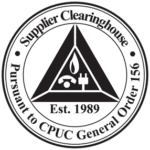Ensuring your business’s information is secure is a key goal of any organization because...

Access Management Weak Spot: Are Your Privileged Accounts at Risk?
Privileged accounts are those within an organization’s IT infrastructure that have more power than ordinary user accounts. Examples of privileged accounts might include Windows Administrator accounts, and accounts associated with router access. Such accounts are necessary for keeping IT processes running smoothly, and they are required in emergency situations as well. As you may imagine, access management for privileged accounts is extremely important.
Yet, one 2016 survey found that 20% of organizations haven’t even changed the default passwords on their privileged account, despite the fact that the overwhelming majority consider privileged access management a top priority. Many organizations allow privileged accounts and their passwords to be shared, and more than one-third of them use the same security for privileged accounts as they do for standard account access. Are the privileged accounts in your organization at risk?
Hackers Often Target Privileged Accounts
If a hacker has the opportunity to access a regular end-user account or a privileged account, he’s going to target the privileged account, because these accounts allow users to exploit just about any part of a network, including sensitive or confidential information. At the same time, most organizations don’t require approval for creation of new privileged accounts, and about half don’t regularly audit privileged account access activity. The fact that a large chunk of organizations must demonstrate privileged account access management to remain in compliance with government regulations makes this particularly worrisome.
Why Privileged Accounts Are Difficult to Secure
Ironically, privileged accounts can be tougher to secure than ordinary user accounts. Rather than being associated one-to-one with a specific user, privileged accounts are often shared by multiple administrators. What happens when one administrator is fired and those left behind don’t bother changing privileged account access credentials? The risks can be enormous.
Every organization with privileged accounts must have a system for privileged account access management to mitigate risks. This should include a policy that spells out specific steps that will be taken if one administrator leaves the company to avoid the possibility of a disgruntled former worker wreaking havoc.
Education of those with Privileged Account Access Is Critical
Strong access management for privileged accounts is important, of course, but also important is continued training and education of the people who have access to these accounts. Administrators must understand that they’re not allowed to abuse access rights, and that if they do, they will face specific consequences.
Suppose a customer support supervisor, with access to personal customer data, decides to look up an ex-spouse’s customer account in hopes of leveraging the information found there. The potential for abuse and misuse of data is significant. Keeping access management strong is important, but so is making sure everyone knows why access management is administered the way it is.
Identity Management and Privileged Account Access
Some access management products incorporate privileged account management, and this can be a smart way to approach the issue. For one thing, it allows the provisioning system to make real-time changes to who can gain access to accounts should the need arise. In the event of an administrator being fired, for instance, this can be the only prudent thing to do.
This type of access management can incorporate rules that prevent administrator access from being extended inadvertently. Suppose a system administrator moves from one company branch to another. The access management system can ensure that she can no longer access the accounts associated with her old location.
Examples of identity management solutions that incorporate tools for managing privileged account access include Oracle Management Suite Plus, Microsoft Enterprise Mobility, CA Technologies CloudMinder, and Okta. If you outsource identity management and access management, your provider can discuss which specific software solution makes the most sense for your requirements.
Access management must evolve continually to keep up with new threats, and CIOs and other executives must understand the importance of creating strong security around privileged accounts. Compromise of a user account is bad enough; compromise of a privileged account can cause damage on a much greater scale. Contact us today to discuss ways to protect your privileged accounts.

Veera Sandiparthi
Written By Veera Sandiparthi Mr. Veera Sandiparthi is a seasonal entrepreneur who brings 18 years of experience with technology solutions and delivering secure integrated enterprise solutions across various industries, including financial, healthcare, technology, and federal. Mr. Veera serves as the President and CEO of AccessQuint LLC. Over the past 2 years became an expert in developing strategic Cybersecurity solutions for both global and domestic clients. By strategically leveraging AccessQuint LLC's expert security resources and best practices, along with his own extensive knowledge of industry challenges and organizational needs, he helps his clients maintain the highest levels of quality while increasing efficiency and streamlining the cost.
Related Post
Cybersecurity insurance, also referred to as cyber insurance or cyber liability insurance, is an...
Ransomware Statistics A quick Google search tells us that the average cost of a...
While the number of people falling for sending personal information to the crown prince...





